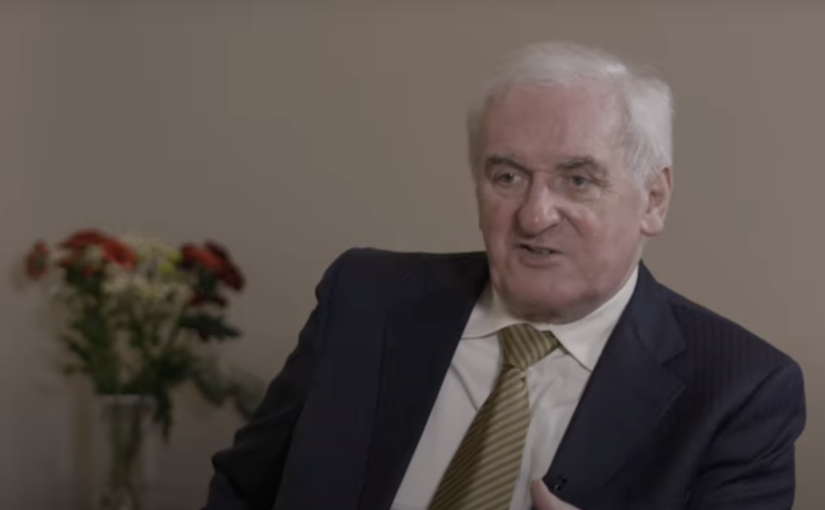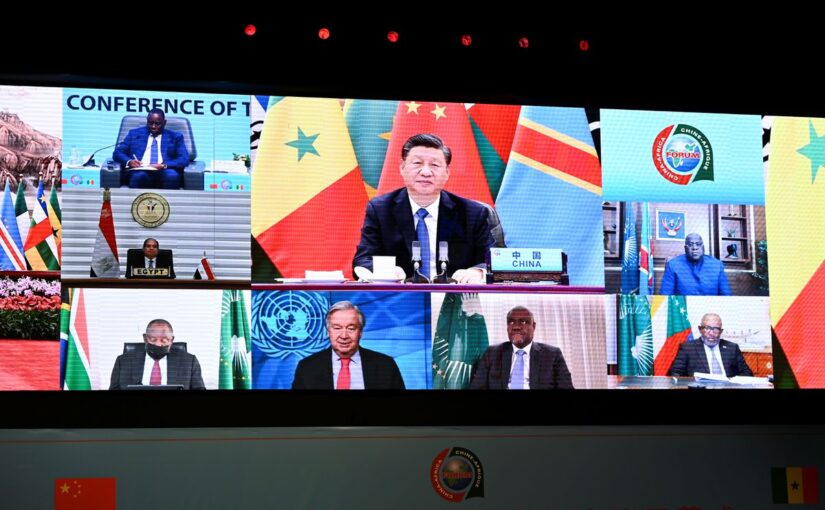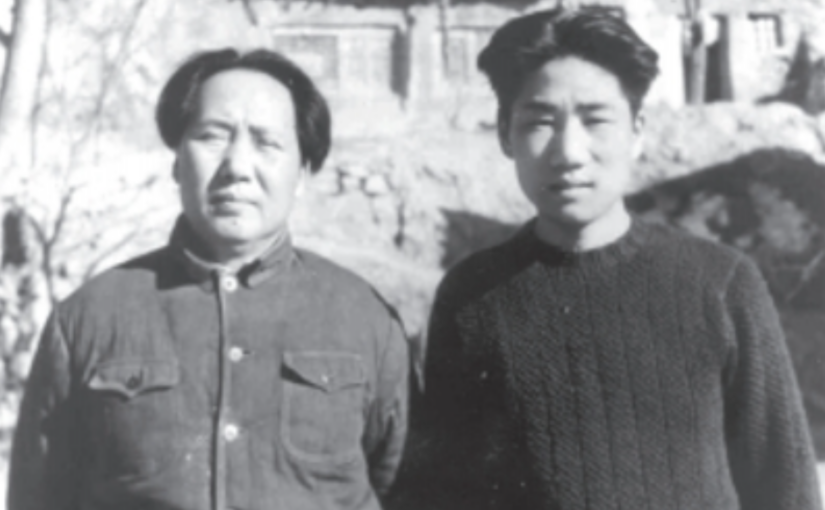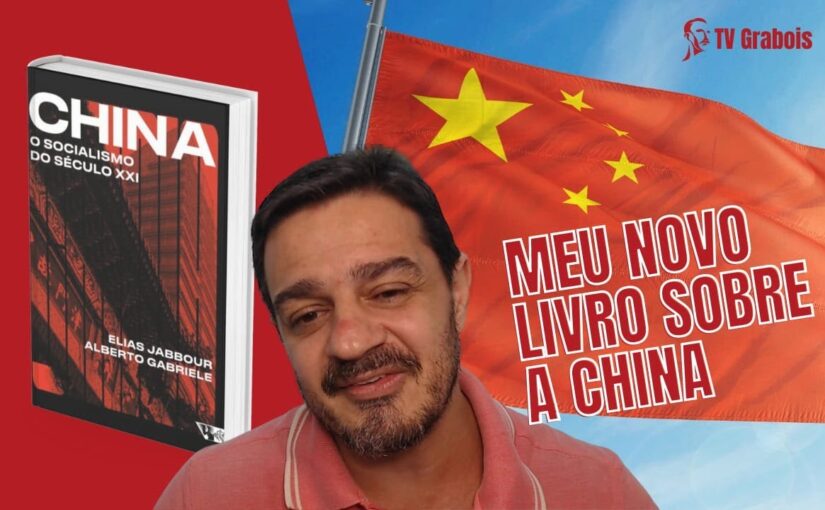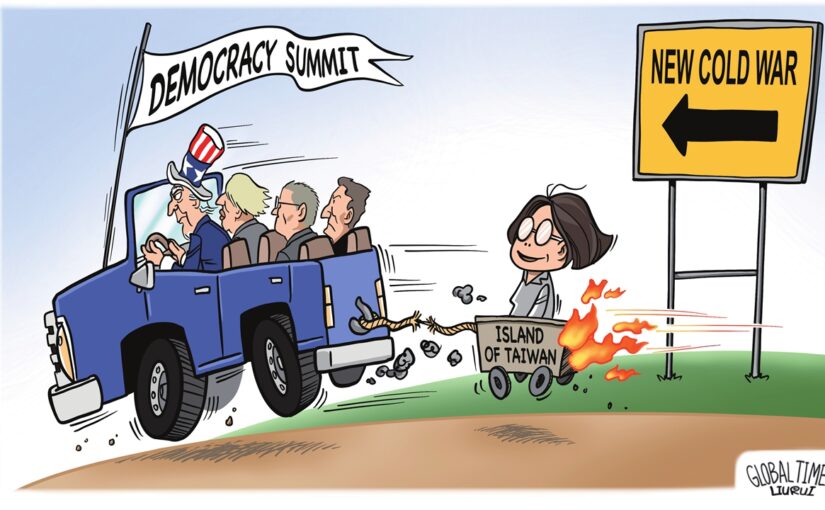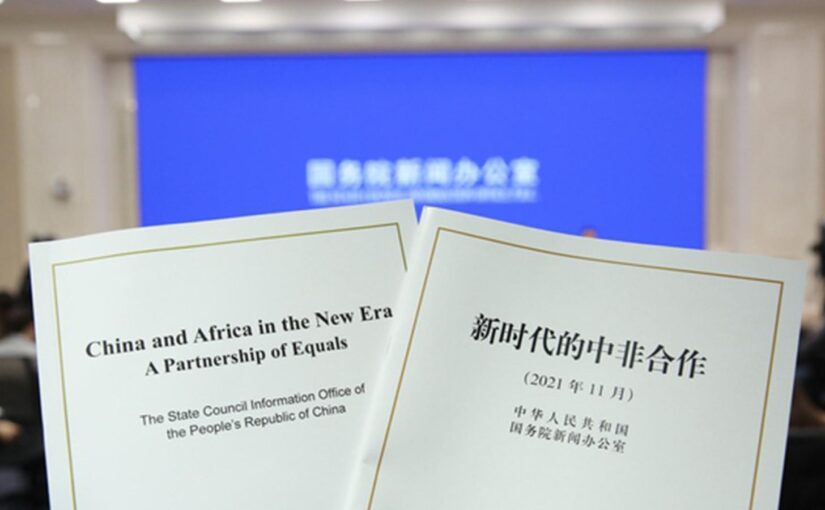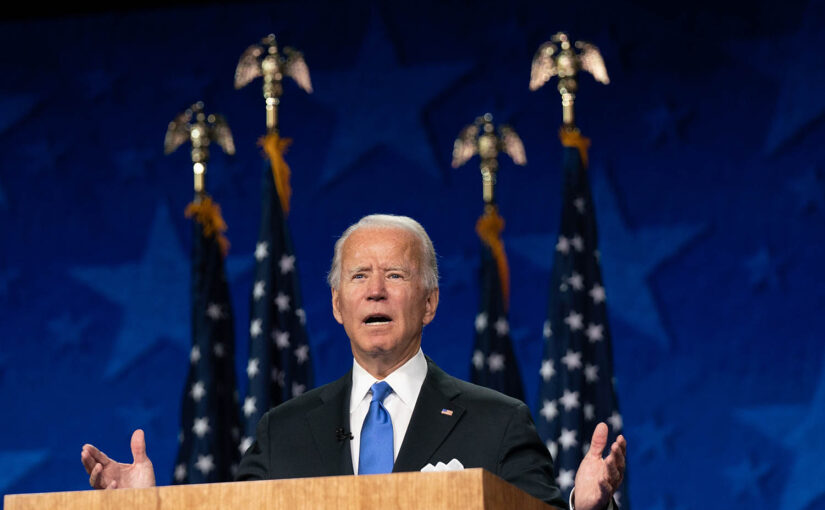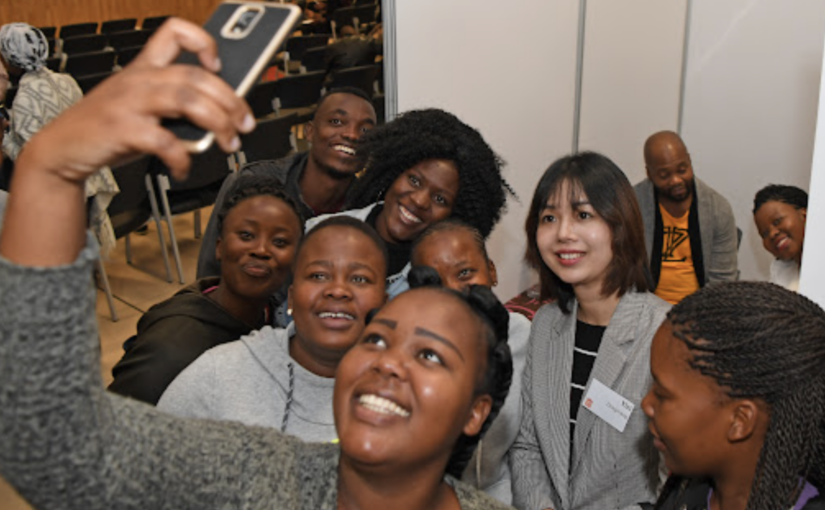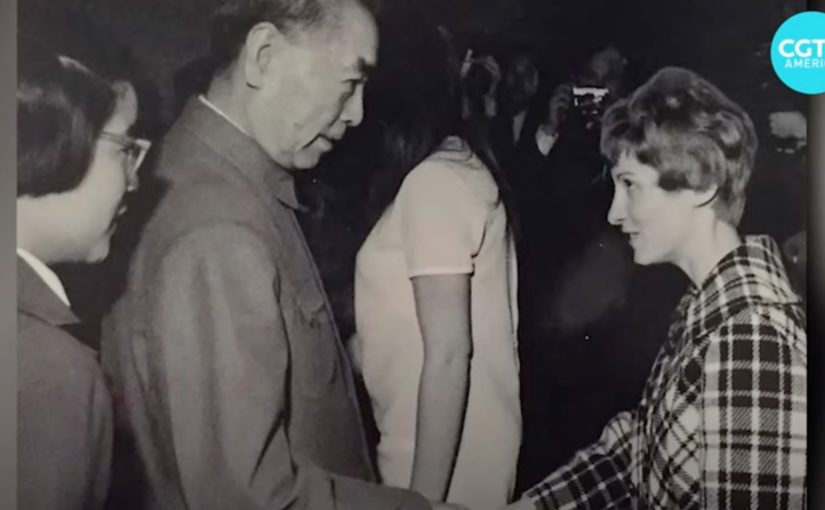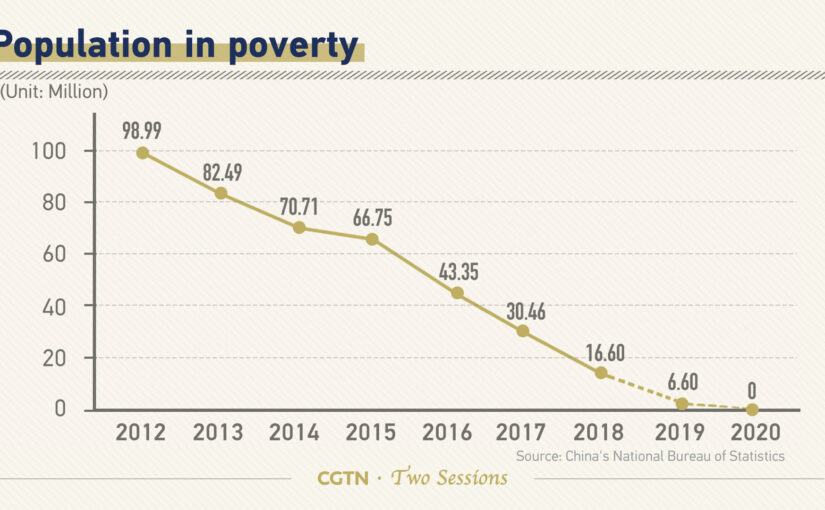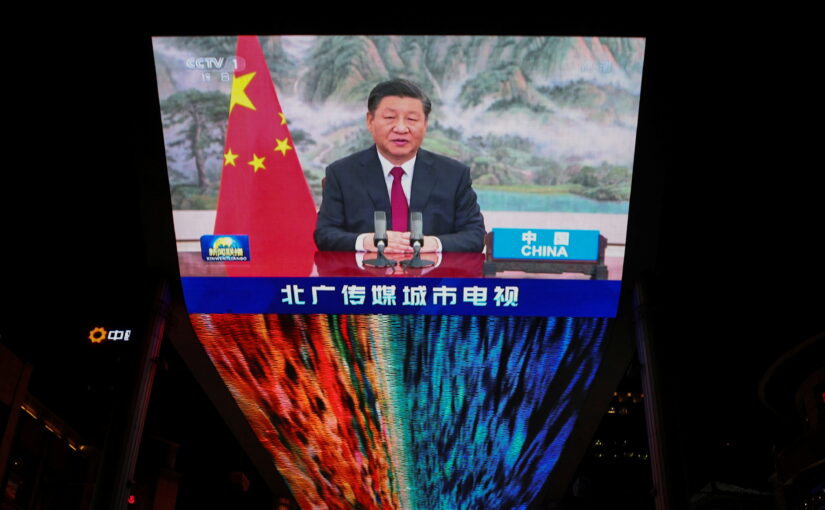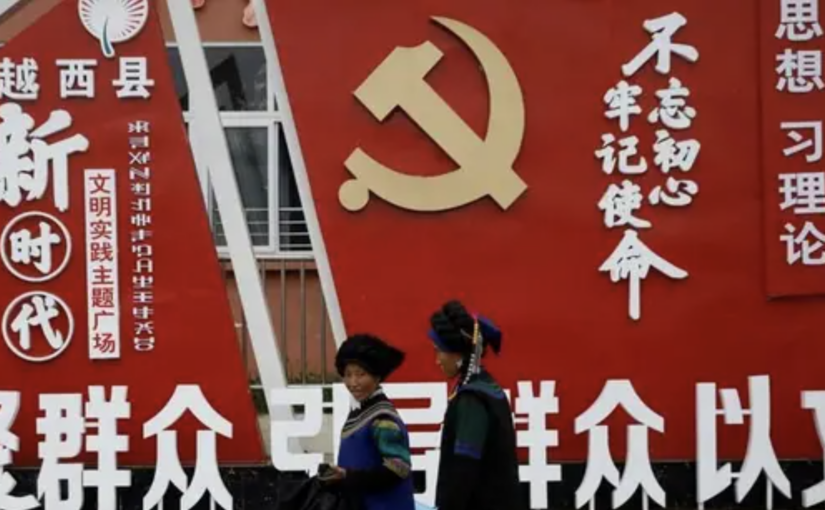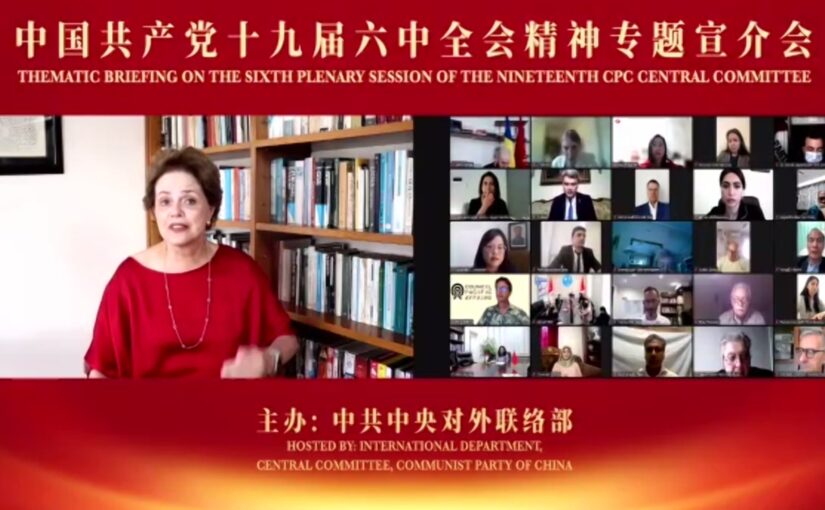In this short interview with CGTN in advance of the 8th Ministerial Conference of the Forum on China-Africa Cooperation (FOCAC), former Irish Prime Minister Bertie Ahern gives his opinions on China-Africa relations. He praises the growing role of FOCAC, points to the transformative impact of China’s infrastructure investment, and debunks the idea that China has laid a ‘debt trap’ for African countries; indeed he notes China’s leading role in debt relief for poor and indebted nations. Video embedded below.
Month: November 2021
Keynote speech by Xi Jinping at opening ceremony of 8th FOCAC ministerial conference
We are very pleased to publish the full text of President Xi Jinping’s important speech to today’s opening ceremony of the Eighth Ministerial Conference of the Forum on China-Africa Cooperation.
Noting that this year marks the 65th anniversary of the start of diplomatic relations between China and African countries, Xi notes that China and Africa have “forged unbreakable fraternity in our struggle against imperialism and colonialism”.
The Chinese President goes on to make four proposals, concerning fighting Covid-19, deepening practical cooperation, promoting green development and upholding equity and justice.
He further notes that the two sides have jointly prepared the ‘China-Africa Cooperation Vision 2035’. Its first three-year plan features nine programmes, covering medical and health, poverty reduction and agricultural development, trade promotion, investment promotion, digital innovation, green development, capacity building, cultural and people-to-people exchange, and peace and security.
Your Excellency President Macky Sall,
Distinguished Colleagues,
Dear Guests and Friends,
It is such a pleasure to attend the opening ceremony of the Eighth Ministerial Conference of the Forum on China-Africa Cooperation (FOCAC). Let me first express sincere appreciation to President Sall and the government of Senegal for their excellent organization, and extend a warm welcome to the colleagues and guests attending the Conference.
This year marks the 65th anniversary of the start of diplomatic relations between China and African countries. Over the past 65 years, China and Africa have forged unbreakable fraternity in our struggle against imperialism and colonialism, and embarked on a distinct path of cooperation in our journey toward development and revitalization. Together, we have written a splendid chapter of mutual assistance amidst complex changes, and set a shining example for building a new type of international relations.
Continue reading Keynote speech by Xi Jinping at opening ceremony of 8th FOCAC ministerial conferenceRemembering Mao Anying, son of Mao Zedong who died fighting US imperialism in Korea
The following article by Xia Yuansheng – president of the Hunan Provincial CPC Historical Figures Research Association – recalls the heroic sacrifice of Mao Anying (eldest son of Mao Zedong), who died on the frontlines of resistance against US imperialism and in solidarity with the Korean people. This episode forms part of a tremendously important history of militant anti-imperialist solidarity and enduring bonds of friendship between China and the DPRK.
The article was published in Chinese in 2010. It is included in the most recent issue of Dongsheng Chinese Voices, to mark the 71st anniversary of Mao Anying’s death (25 November 1950). Chinese Voices provides a valuable weekly newsletter containing a selection of articles by key Chinese thinkers.
On 25 June 1950, the Korean War broke out. On the third day, the United States imperialists announced armed assistance to south Korea and at the same time ordered its Seventh Fleet to sail into the Taiwan Strait, blatantly interfering in China’s internal affairs, and on 15 September the United States landed at Inchon and soon crossed the “38th parallel”, blatantly burning the war to the border of China and North Korea and the Yalu River, directly threatening the security and peace-building of new China. Faced with the most severe test of foreign war, political and military struggle, the Central Committee of the Communist Party of China, at the request of the Workers’ Party of Korea, the Government of the Democratic People’s Republic of Korea and the will of the Chinese people, decided to send troops to resist the U.S. and aid the DPRK. on October 18, Mao Zedong, Chairman of the Central Military Commission, issued the order “Resist the U.S. and aid the DPRK, protect the country”. On October 18, Mao Zedong, Chairman of the Central Military Commission, issued an order “to defend the interests of the Korean people, the Chinese people and the peoples of the East by transforming the Northeast Frontier Defense Army into the Chinese People’s Volunteer Army and marching to the territory of Korea at once to fight with the Korean comrades against the invaders and to strive for a glorious victory”. On October 25, the first battle was won, opening the prelude to the war against the U.S. and Korea, so the Chinese people have always taken this day as the anniversary of the Chinese People’s Volunteer Army’s departure for North Korea.
Continue reading Remembering Mao Anying, son of Mao Zedong who died fighting US imperialism in KoreaElias Jabbour: The “fundamental law” of the new Chinese socioeconomic formation
This brief original essay by Elias Jabbour, Professor at the School of Economics, Rio de Janeiro State University, introduces a key idea from his book with Alberto Gabriele, China: Socialist Economic Development in the 21st Century (due to be released by Routledge in English in March 2022), emphasising that China’s combination of a hybrid economy, Communist Party leadership and innovative and effective governance collectively constitute an important development of Marxist political economic theory.
The task of each and every social scientist dedicated to the evolution of humankind runs through understanding in which stage the human anatomy is, what we must keep in mind in order to better understand the progress of the monkey´s anatomy.
Likewise, in socio-historical terms, it is central to comprehend which is the most advanced formation in course in the world today. This is how we arrived at the Chinese “Market Socialism” and its particularities, what led us to designate it as a “new socioeconomic formation”. As President Dilma Roussef pointed out at the launch of our book, it is “not emerging as a result of a pre-existing capitalism”. The challenge now is to discover the nature of its functioning, its internal coherence, the “universal in the particular”.
Continue reading Elias Jabbour: The “fundamental law” of the new Chinese socioeconomic formationGlobal Times editorial on the inclusion of Taiwan province in Biden’s ‘Summit for Democracy’
This significant editorial from leading Chinese newspaper Global Times warns that the Biden administration is making a dangerous and provocative mistake in inviting the Taiwan authorities to its so-called Summit of Democracies next week. This dangerous escalation on the part of the US lends increased topicality and indeed urgency to our own Summit for Socialist Democracy, to be held on December 11, and which includes Chinese, Cuban, Vietnamese, Korean and Venezuelan perspectives among others.
The US Department of State released on Tuesday evening the list of 110 “participants” to the “Summit for Democracy.”
What caught the immediate attention of worldwide media were, first, the island of Taiwan was on the list; second, several countries were missing from the list, not just China and Russia, but also Turkey, a NATO member, Hungary, an EU and NATO member, and Singapore, Thailand and Vietnam from Asia, and all the countries from the Middle East except for Israel and Iraq.
Taiwan being invited was the most eye-catching. In addition to being thankful to the Biden administration, the Democratic Progressive Party (DPP) authority immediately announced its representatives to the summit including Audrey Tang Feng, a member of Taiwan’s “executive authority,” and Hsiao Bi-khim, the island of Taiwan’s representative to the US.
Continue reading Global Times editorial on the inclusion of Taiwan province in Biden’s ‘Summit for Democracy’China hails solidarity with Africa as cornerstone of its foreign policy
This article from CGTN provides a useful summary of the latest Chinese government White Paper on relations with Africa. China and Africa in the New Era: A Partnership of Equals was published by the State Council of the PRC on Friday, ahead of an important meeting of the Forum on China Africa Cooperation (FOCAC).
China and Africa trust each other, and their friendship is rock solid, a white paper on cooperation with the continent issued by China’s State Council Information Office said on Friday.
The report, titled “China and Africa in the New Era: A Partnership of Equals,” said shared past experiences and similar aims and goals have brought China and Africa close together and they will always be a “community of shared future.”
Developing solidarity and cooperation with African countries has been the cornerstone of China’s foreign policy, as well as a firm and longstanding strategy, it said.
Danny Haiphong: The Summit for Democracy’s undemocratic agenda
Co-editor of FoSC Danny Haiphong analyzes the Biden administration’s Summit for Democracy to be held on December 9th and 10th. Haiphong argues that the Summit reinforces the US’s exclusionary imperialist agenda with an aim toward mobilizing allies against China. Friends of Socialist China is organizing a counter Summit for Socialist Democracy. The summit will take place on December 11th and feature analysis of the differences between socialist democracy and capitalist democracy.
The Biden administration is set to hold its “Summit for Democracy” beginning December 9. The summit comes after a period of positive dialogue between the United States and China. China and the U.S. ended COP26 with a joint declaration on the climate crisis.
Less than a week later, Chinese President Xi Jinping and his U.S. counterpart Joe Biden took part in a virtual meeting that further emphasized a spirit of cooperation. Experts from both countries believed that the meeting boosted momentum toward the removal of Trump-era tariffs which continue to harm U.S. economic interests. However, the “Summit for Democracy” possesses a clear political agenda that contradicts the progress made in recent U.S.-China talks.
Continue reading Danny Haiphong: The Summit for Democracy’s undemocratic agendaChina, Africa to further boost ties
With the 8th ministerial meeting of the Forum on China Africa Cooperation (FOCAC) opening in Senegal on Monday, this useful article from China Daily highlights how friendship, solidarity and cooperation with Africa have been a cornerstone of Xi Jinping’s foreign policy since he became President of China in 2013. His first foreign trip as head of state, days after taking office, took him to Russia, Republic of Congo, Tanzania and South Africa.
Development of relations guided by principles of ‘amity, real results’
Days after he was elected China’s president in March 2013, Xi Jinping embarked on his first overseas trip as head of state. Three of the tour’s four destinations were African countries.
When making a speech at the Julius Nyerere International Convention Centre in Dar es Salaam in Tanzania, Xi said the trip was his sixth visit to the continent.
“When I visit Africa, I am always struck by two things,” Xi said. “One is its continuous progress. Each time I come to Africa, I am deeply impressed by new progress in development, which is most encouraging. The other is the warmth of the African people.”
Continue reading China, Africa to further boost tiesTable tennis champ Connie Sweeris discusses her experience playing in China
Embedded below is a lovely video interview of Connie Sweeris, then the US national women’s singles table tennis champion, reflecting on her visit to China in 1971 as part of the ‘ping-pong diplomacy’ mission – an important first step on the road to US-China normalization. With the Beijing Winter Olympics coming up in early 2022, and with the US and other countries threatening a diplomatic boycott, Connie Sweeris emphasizes the power of sport in breaking down barriers and building understanding between peoples.
Keith Lamb: Blocking China’s semiconductor industry is an attempt to impede the construction of socialism
We republish below an important piece of analysis by Keith Lamb, originally published in CGTN on 23 November 2021, seeking to understand the US’s motivations in imposing restrictions on China’s semiconductor industry. The author concludes that semiconductor technology is crucial for China’s goal of building a modern socialist country by 2049, and that the US and its allies are determined to impede – or ideally prevent – any further economic breakthroughs for socialist China.
Since 2015, the U.S. has introduced technological restrictions preventing China from both competing openly in consumer markets and acquiring technology. Restrictions have focused on the semiconductor industry and correlated sectors. For example, the Chinese chipmaker Semiconductor Manufacturing International (SMIC) was blacklisted in December 2020, and, just before this, U.S. and non-U.S. chipmakers who use U.S. semiconductor technology, were forced to comply with U.S. sanctions meaning they could no longer take orders from companies like Huawei.
The U.S. has justified its actions by citing China’s civil-military integration where semiconductors can be used in advanced weaponry. However, even if true, considering the U.S. military and the microchip industry grew in tandem, this crossover wouldn’t be extraordinary. At any rate, it isn’t China’s military that surrounds the U.S., and nor does China seek to confront the U.S. which sits securely protected by two oceans and two compliant neighbors.
Continue reading Keith Lamb: Blocking China’s semiconductor industry is an attempt to impede the construction of socialismThe significance of the new road of Chinese style modernization and its positive role in the world socialist movement
This interesting paper was presented by Guan Wei of the School of Marxism, Dalian University of Technology (DUT) at the School’s Cloud International Workshop on ‘New Forms of Human Civilisation from a World Perspective’, held October 29-31 2021.
Guan argues that: “Since the disintegration of the Soviet Union and the drastic changes in Eastern Europe, the world socialist movement has fallen to a low ebb. Through unremitting efforts, socialism with Chinese characteristics has become the mainstay of the world socialist movement in the 21st century… China has opened a new path of Chinese modernization and a new prospect for the development of world socialism.”
Thanks to the DUT Translation Team and to Professor Roland Boer for subediting.
Abstract: In the “7.1” speech delivered at the 100th anniversary of the Communist Party of China, Comrade Xi Jinping pointed out that China adheres to and develops socialism with Chinese characteristics, and has created a new road of Chinese style modernization and a new form of human civilization. This important exposition breaks through the theoretical and practical model of modernization with the West as the core, and puts forward a new path of Chinese modernization based on the practice of socialist modernization with Chinese characteristics. Since the disintegration of the Soviet Union and the drastic changes in Eastern Europe, the world socialist movement has fallen to a low ebb. Through unremitting efforts, socialism with Chinese characteristics has become the mainstay of the world socialist movement in the 21st century. Especially since the global economic crisis in 2008, China’s developmental achievements are obvious to all. With the achievements of its own development and its own practice of construction, China has opened a new path of Chinese modernization and a new prospect for the development of world socialism.
Since the 18th National Congress of the Communist Party of China (2012), socialism with Chinese characteristics has entered a new era, and China has opened up a new prospect for socialist development with its own developmental achievements and practice in construction. Especially since the global economic crisis in 2008, China’s development achievements are obvious to all. In his “7.1” speech, delivered at the 100th anniversary of the Communist Party of China, Comrade Xi Jinping pointed out that China adheres to and develops socialism with Chinese characteristics, and has created a new path of China’s modernization and new form of human civilization.
Continue reading The significance of the new road of Chinese style modernization and its positive role in the world socialist movementChina’s war on poverty
We are very pleased to publish this original article by Stefania Fusero, analysing the extraordinary successes of China’s targeted poverty alleviation program. The Italian version of the article will be published in two parts in La Città Futura.
In May 2020, PBS, a US public broadcaster, aired “China’s War on Poverty”, a documentary film co-produced with CGTN (Chinese State Television). A few days later, Daily Caller, a right-wing news website, accused the documentary of being “pro-Beijing”. After Fox News followed suit, PBS removed the film from its network.
According to Robert L. Kuhn, the producer of the film, the eradication of poverty in China ought to be understood by everybody, owing to the relevance it bears for the entire planet.
It is undoubtedly the story of a huge success of China’s, therefore it is no surprise that the western media and political establishment does not want it to be known and autonomously evaluated across our “free” world, whose citizens are kept carefully sheltered from any positive news about China.
The film can still be watched on CGTN YouTube channel at this link.
Here we will try to illustrate how the PRC managed to eradicate extreme poverty ten years ahead of the schedule set out in the UN 2030 Agenda for Sustainable Development.
In 2000, all UN member states committed to achieve eight development goals by the year 2015, the so-called Millennium Development Goals, the first of which was to halve the number of people living in poverty. Whereas China managed to achieve the goal by 2015, other countries did not. Thus in 2015 the commitments were reaffirmed in the 2030 Agenda for Sustainable Development, a plan of action for people, planet and prosperity announcing seventeen Sustainable Development Goals to be achieved by 2030, the first and foremost of which was “to end poverty”.
Continue reading China’s war on povertyLi Jingjing interviews Carlos Martinez on Xi-Biden Summit
Friends of Socialist China co-editor Carlos Martinez was interviewed by CGTN journalist Li Jingjing about the recent Xi-Biden summit, the prospects for the New Cold War in the coming period, the failure of the trade war, the influence of the military-industrial complex on US policy, escalating tensions over Taiwan, and the possibilities for cooperation between the major countries on the question of climate change.
Danny Haiphong: The fake Peng Shuai scandal is part of US efforts to disrupt Beijing Winter Olympics
The following article by Danny Haiphong, originally published in MintPress News, takes a detailed look at the recent story of Chinese tennis player Peng Shuai, who was alleged to have ‘disappeared’ in early November after posting allegations of sexual assault against former Vice Premier Zhang Gaoli. Danny exposes the absurdly sensationalized version of the story that appeared in the Western press, and shows how it is feeding into US efforts to demonize China and disrupt the Beijing 2022 Winter Olympics.
The New York Times reported on November 3 that Chinese tennis star Peng Shuai had published allegations of sexual assault against former Vice Premier of the People’s Republic of China Zhang Gaoli on the social media platform Weibo. Peng’s post was deleted within 24 hours. This led to a firestorm of speculation in U.S. corporate media about Shuai’s “safety” and whether the tennis star had gone missing. The hashtag #WhereisPengShuai went viral 10 days later after the CEO of the World Tennis Association (WTA), Steve Simon, called on Chinese authorities to investigate the situation. Prominent celebrities and tennis players such as Serena Williams also went public with their concern for Peng.
Continue reading Danny Haiphong: The fake Peng Shuai scandal is part of US efforts to disrupt Beijing Winter OlympicsXi’s explanation of resolution on major achievements and historical experience of CPC over past century
The following address was given by Xi Jinping, General Secretary of the Communist Party of China, to the plenary meeting of the Party’s Central Committee, held in Beijing from 8 to 11 November 2021. It provides a detailed explanation of the contents of the Resolution on the Major Achievements and Historical Experience of the Party over the Past Century that was adopted by the meeting as well as outlining how the document was drafted and revised. It provides an excellent introduction to and summary of the Resolution and deserves careful study.
On behalf of the Political Bureau of the 19th Central Committee of the Communist Party of China (CPC), I will now brief you on the Resolution of the CPC Central Committee on the Major Achievements and Historical Experience of the Party over the Past Century and related issues.
I. Considerations on the Agenda of the Sixth Plenary Session of the 19th CPC Central Committee
Our Party has always attached great importance to reviewing its historical experience. As early as in the Yan’an period, Comrade Mao Zedong pointed out, “We will not be able to achieve greater success unless we have a clear understanding of our history and of the roads we have traveled.”
In 1945, at the critical juncture for securing final victory in the War of Resistance against Japanese Aggression, the Sixth CPC Central Committee convened its seventh plenary session and adopted the Resolution on Certain Questions in the History of Our Party. The resolution reviewed the history of the Party and the experience it had gained and lessons it had learned since its founding in 1921, especially those in the period between the fourth plenary session of the Sixth Central Committee in January 1931 and the Zunyi Meeting in January 1935. It drew conclusions on major historical issues of the Party, leading to a broad consensus among all Party members, particularly high-ranking officials, on fundamental questions pertaining to the Chinese revolution. It served to strengthen the solidarity of the Party, paved the way for the convocation of the Seventh CPC National Congress, and helped advance the Chinese revolution significantly.
Continue reading Xi’s explanation of resolution on major achievements and historical experience of CPC over past centuryRally in London’s Chinatown against anti-Asian racism (Saturday 27 November)
On Saturday 27 November 2021, there will be a rally in London’s Chinatown (Gerrard Street, W1D 5PT) against anti-Asian racism. We encourage those readers that live locally to attend if they can. Below is an article from the Morning Star by Dr Ping Hua providing background and details for the rally.
Racism against the Chinese community is not a new phenomenon in British society.
There were reports of race riots targeting Chinese businesses and laundries as early as 1919. At times of national disaster in the country, the Chinese community has become the scapegoat on many occasions.
For example, we witnessed a spike in racist incidents against the Chinese community during the Foot & Mouth crisis in 2001, due to the unfounded accusations that the disease was caused by a Chinese restaurant using illegally imported meat.
Continue reading Rally in London’s Chinatown against anti-Asian racism (Saturday 27 November)A question of State and Revolution: China and Market Socialism
We are very pleased to republish this important article from the website Workers Today on the important question of China and market socialism. Rigorously argued and theoretically well grounded, it puts forward six main theses:
- That Chinese market socialism is a way to address the backward state of productive forces
- That market socialism in China is a Marxist-Leninist tool that is important to socialist construction. Here it draws on both Marx’s Critique of the Gotha Program and Lenin’s The Tax in Kind
- That the CPC’s continued leadership and control of this economy is central to Chinese socialism
- That Chinese socialism has catapulted a workers state to previously unknown economic heights
- That China’s successful development of a modern industrial economy has laid the basis for higher forms of socialist economic organisation
- That China’s application of market socialism to its relations with other developing countries plays a major role in the fight against imperialism
Although issued by Workers Today on 18 November 2021, the article originally appeared on the Return to the Source website in May 2011. It may have been written a decade ago, but its analysis and conclusions remain highly relevant.
Though each face very specific obstacles in building socialism, these five countries–the Republic of Cuba, the Socialist Republic of Vietnam, the Lao People’s Democratic Republic, the Democratic People’s Republic of Korea, and the People’s Republic of China–stand as a challenge to the goliath of Western imperialist hegemony. Among them, however, China stands unique as a socialist country whose economic growth continues to supersede even the most powerful imperialist countries.
Continue reading A question of State and Revolution: China and Market SocialismChinese and international experts discuss China’s progress and vision for the future
On 19 November 2021, the International Department of the Communist Party of China (CPC) held a briefing in Beijing about the recently-concluded 6th Plenary Session of the 19th CPC Central Committee. Friends of Socialist China’s co-editors were among the several hundred international guests attending via video link.
The speakers from the CPC gave an overview of the Plenary Session and the Resolution of the CPC Central Committee on the Major Achievements and Historical Experience of the Party over the Past Century it adopted. The key message of the Plenary and Resolution is a reaffirmation and further definition of China’s evolving socialist path in the present era, central elements of which include: a strong emphasis on sustainable development and the construction of an ecological prosperity; tackling relative poverty and building common prosperity; continuing to develop whole-process people’s democracy; continuing the party’s self-reform and the fight against corruption; expanding the Belt and Road Initiative, upholding multipolarity and working towards a human community with a shared future; and moving confidently towards the CPC’s Second Centenary Goal: “to build China into a great modern socialist country that is prosperous, strong, democratic, culturally advanced, harmonious, and beautiful.”
Continue reading Chinese and international experts discuss China’s progress and vision for the futureLee Camp interviews Li Jingjing on Western misconceptions about China
Comedian and activist Lee Camp interviewed CGTN journalist and vlogger Li Jingjing on his program Redacted Tonight about common Western misconceptions about China. Highlighted in the interview is the importance of Chinese voices in countering the propaganda war and how these voices have been silenced and ignored by Western media.
From poverty to prosperity, China’s century
This very interesting article by University of Glasgow professors Asit K Biswas and Cecilia Tortajada provides an overview of the extraordinary economic, political and scientific progress China has made since liberation – with a particular focus on the strategy of Reform and Opening Up – and analyses how this progress provides the foundations for achieving the country’s ambitious goals around sustainable development. The article was originally published in China Daily on 12 November 2021.
The speed, scale and span of the economic and social transformation of China during the past 40-odd years have been unprecedented in human history.
One hundred years ago, times were not good for China. Its 400 million people lived mainly in rural areas, mired in poverty. It was a nation ravaged by imperial mismanagement, foreign colonialism and civil wars.
On July 23 1921, 13 disillusioned Chinese young men and two representatives from the Communist International, met secretly in an inconspicuous house, 106 Rue Wantz, in Shanghai’s French Concession, which began the first national congress of the Communist Party of China (CPC). The police interrupted the meeting on July 30, and the Chinese members shifted their discussions to a tourist boat on the South Lake in Jiaxing, Zhejiang province, to continue the first National Congress. The first congress marked the founding of the CPC.
Continue reading From poverty to prosperity, China’s century